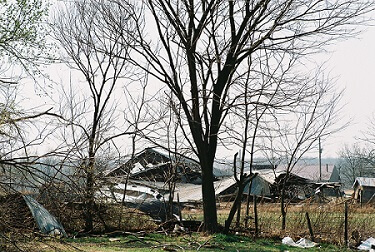An Ounce of Prevention Equals More Than a Pound of Cure.
Heartbreaking is a strong word but it isn’t adequate to describe the collective grief we all feel when viewing the devastation in the aftermath of the massive tornado that swept through the outskirts of Oklahoma City recently. Your heart goes out to the young mother who asks, “Why didn’t we have better protection for our schoolchildren?” Why indeed.

Survivors?
Where were the voices of prevention before the storm? There’s a reason this area of the Midwest is called “Tornado Alley!”
Why indeed weren’t there underground or interior shelters in the schools and pre-schools? It’s a very interesting question and a curious commentary on the workings of the human mind.
Tornadoes versus earthquakes and floods.
I recall vividly a visit I made to some relatives living in Baxter Springs, Kansas, a few short weeks after a tornado tore through the area and took the lives of a few residents, including some of my remote American Indian relatives. My own experience of getting tossed out of my upper bunk bed in 1953 (or was it 1954?) by an earthquake in the Tehachapi Mountains in Southern California had burned into my brain the need to take precautions against the natural risks.
Yet my relatives’ attitude about the tornadoes could only be described as nonchalant. At the same time, I had to wonder about their reluctance to even visit California because of their fear of earthquakes!
These same people chose to live with the yearly risk of tornadoes . . . the natural disaster risk they’ve become accustomed to. Their fatalistic attitude (“. . . if it’s God’s will,” etc.) seemed to work for them with tornadoes, but not with earthquakes.
I guess it’s a lot like buying insurance.
Would we agree that “responsible people” purchase insurance against recognized risk? Many responsible people who live in flood prone areas do seem to take out flood insurance . . . but not all. And the fact that less than 20% of California residents have earthquake insurance – despite the near 100% probability of a major earthquake over 6.7 on the Richter scale in the next 20-30 years – seems a bit incongruent.
The good news, however, is that 40% say they have taken at least some actions to prepare themselves and, in the case of CERT organizations, have expanded their efforts to include their neighborhoods and businesses. Hopefully, we are having some impact on these wider preparations as well.
Joe Krueger
Your Emergency Plan Guide Team
Don't miss a single Advisory.
Thank you for subscribing.
Something went wrong.
